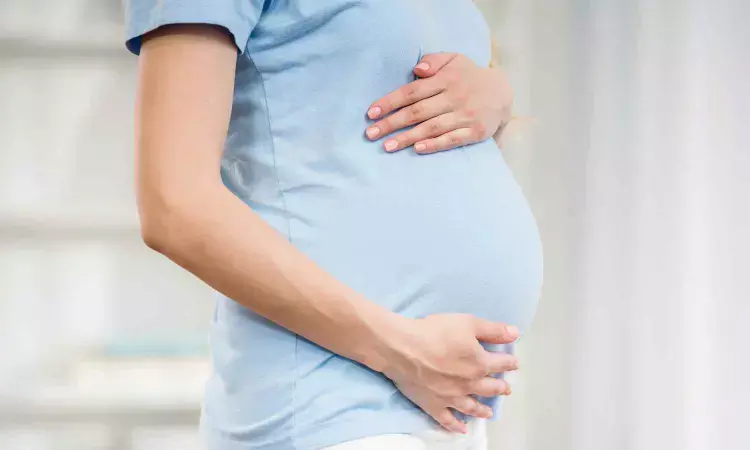- Home
- Medical news & Guidelines
- Anesthesiology
- Cardiology and CTVS
- Critical Care
- Dentistry
- Dermatology
- Diabetes and Endocrinology
- ENT
- Gastroenterology
- Medicine
- Nephrology
- Neurology
- Obstretics-Gynaecology
- Oncology
- Ophthalmology
- Orthopaedics
- Pediatrics-Neonatology
- Psychiatry
- Pulmonology
- Radiology
- Surgery
- Urology
- Laboratory Medicine
- Diet
- Nursing
- Paramedical
- Physiotherapy
- Health news
- Fact Check
- Bone Health Fact Check
- Brain Health Fact Check
- Cancer Related Fact Check
- Child Care Fact Check
- Dental and oral health fact check
- Diabetes and metabolic health fact check
- Diet and Nutrition Fact Check
- Eye and ENT Care Fact Check
- Fitness fact check
- Gut health fact check
- Heart health fact check
- Kidney health fact check
- Medical education fact check
- Men's health fact check
- Respiratory fact check
- Skin and hair care fact check
- Vaccine and Immunization fact check
- Women's health fact check
- AYUSH
- State News
- Andaman and Nicobar Islands
- Andhra Pradesh
- Arunachal Pradesh
- Assam
- Bihar
- Chandigarh
- Chattisgarh
- Dadra and Nagar Haveli
- Daman and Diu
- Delhi
- Goa
- Gujarat
- Haryana
- Himachal Pradesh
- Jammu & Kashmir
- Jharkhand
- Karnataka
- Kerala
- Ladakh
- Lakshadweep
- Madhya Pradesh
- Maharashtra
- Manipur
- Meghalaya
- Mizoram
- Nagaland
- Odisha
- Puducherry
- Punjab
- Rajasthan
- Sikkim
- Tamil Nadu
- Telangana
- Tripura
- Uttar Pradesh
- Uttrakhand
- West Bengal
- Medical Education
- Industry
Air pollution exposure late in pregnancy increases NICU admission risk: Study

Air pollution caused by auto emissions, wildfires and other sources is problematic for many people. It's of particular concern for pregnant people due to the impact pollutants can have on the fetus, especially in the final month before birth.
A new study from the University at Buffalo offers insight into air pollution’s effects during this vulnerable time by measuring neonatal intensive care unit (NICU) admissions and satellite-based air pollution data.
The researchers focused on common pollutants, such as nitrogen dioxide (NO2), which is caused primarily by the burning of fossil fuels in vehicles, industrial processes and power plants, and PM2.5, which refers to fine inhalable particles with diameters that are generally 2.5 micrometers and smaller. They also studied ozone (O3), which is a secondary pollutant that is formed from oxygen and other gases in the presence of sunlight.
The findings, published in January in the Nature journal Scientific Reports, show that newborns exposed in the last month of pregnancy to higher levels of NO2 have a 30-35% higher risk of NICU admission and an 11-22% increased risk associated with PM2.5.
“Our findings highlight the critical impact of air pollution during the final weeks of pregnancy, a time of heightened fetal vulnerability, and emphasize the significance of addressing air pollution exposure, even at lower levels,” says the study’s first author, Yohane V.A. Phiri, PhD, a postdoctoral research associate in the Department of Epidemiology and Environmental Health in UB’s School of Public Health and Health Professions.
Exposure to air pollution during pregnancy has been linked to several adverse neonatal outcomes including birth defects, preterm delivery and altered fetal growth, according to Phiri.
“While our findings are not causal, limiting direct inference, they support local and national initiatives aimed at further reducing air pollution and improving air quality,” he said. “Such efforts could ultimately benefit pregnant women by minimizing exposure to harmful pollutants and reducing associated neonatal health risks.”
Despite advancements in maternal and child health care, NICU admissions remain high in the U.S., with 8.1% of infants admitted in 2018, the year on which the study is focused. And while the U.S. has relatively low air pollution levels compared to other countries, air pollution’s impact on NICU admissions remains an understudied area, according to Phiri.
The study, he adds, was designed to assess the impact of air pollution exposure on NICU admissions across the United States using satellite-derived data, which allows for more comprehensive coverage that can also include areas that lack ground-based monitoring, such as rural parts of the country.
The research team grouped data by regions of the U.S. For example, the Great Plains area saw a lower risk of NICU admissions, a finding that could be attributed to the fact that the risk is underestimated given that infants in more rural parts of the country are transferred to a NICU only for severe complications due to limited access of such units in these areas.
Findings varied by pollutants and geographic region.
“We saw the strongest risks with NO2 and intermediate risks with PM2.5,” Phiri said, adding that ozone results showed either a protective effect or no difference among groups, except for during the summer.
Geographically, the Midwest and Mid-Atlantic regions had the highest odds of NICU admission due to NO2 exposure. For PM2.5, seasonal variations were noted, with persistent risks along the West Coast and in the Southeast. Summer saw widespread risks, while winter risks were highest in the Northeast, Phiri said.
Reference:
Phiri, Y.V.A., Canty, T., Nobles, C. et al. Neonatal intensive care admissions and exposure to satellite-derived air pollutants in the United States, 2018. Sci Rep 15, 420 (2025). https://doi.org/10.1038/s41598-024-84755-9
Dr Kamal Kant Kohli-MBBS, DTCD- a chest specialist with more than 30 years of practice and a flair for writing clinical articles, Dr Kamal Kant Kohli joined Medical Dialogues as a Chief Editor of Medical News. Besides writing articles, as an editor, he proofreads and verifies all the medical content published on Medical Dialogues including those coming from journals, studies,medical conferences,guidelines etc. Email: drkohli@medicaldialogues.in. Contact no. 011-43720751


